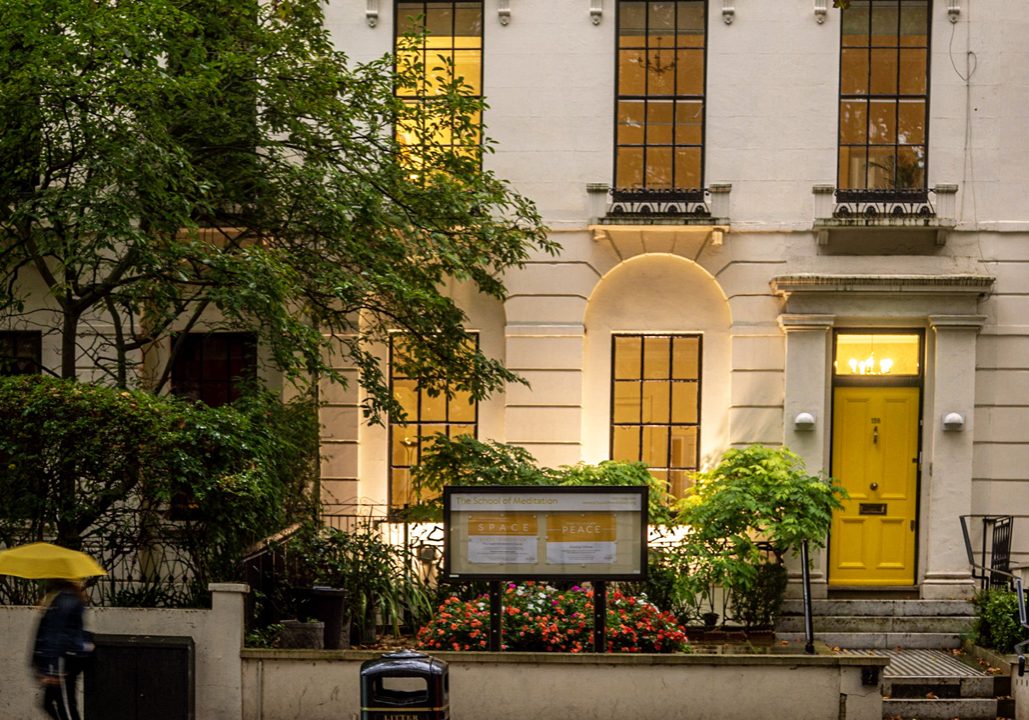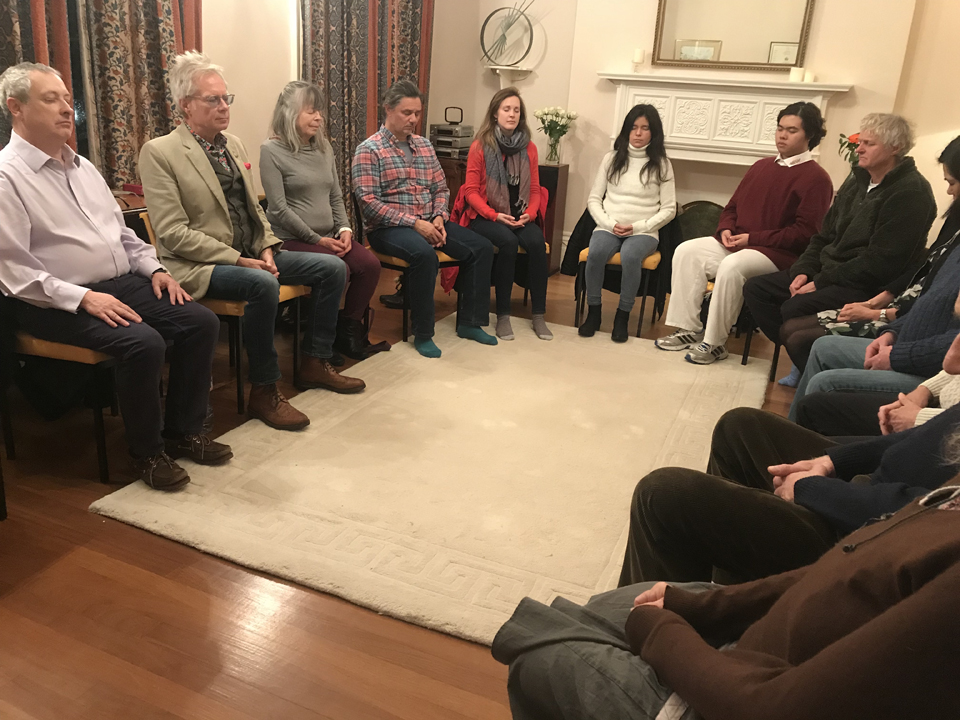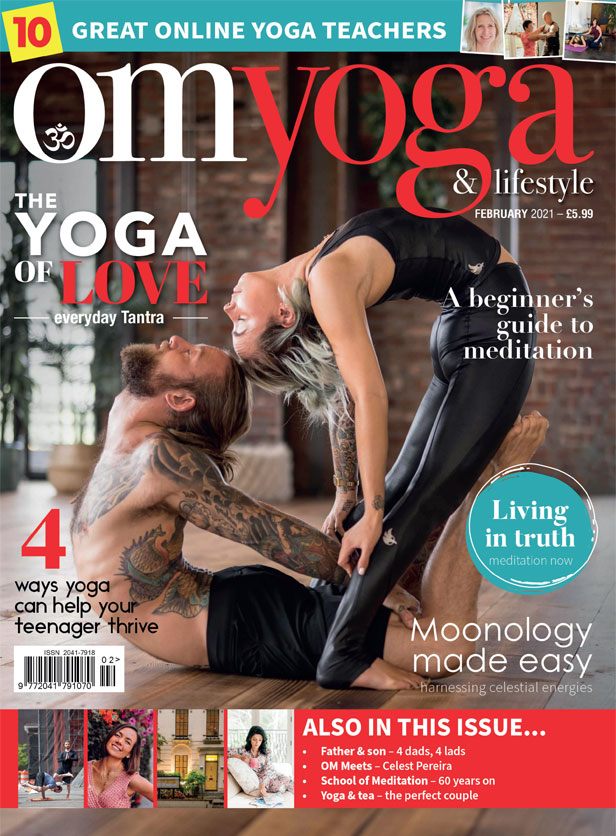
School of Meditation
The School of Meditation, which celebrates its 60th anniversary this year, is a true pioneer of meditation in the West. Now it wants to introduce a whole new generation to this ancient practice
Meditation is a lot more mainstream in the West nowadays, and has come a long way since The Beatles helped to popularise it back in the 60s. Mindfulness has likewise become a buzzword in recent years; it is now practiced widely in schools and offices in the UK and around the world. Sitting on the train heading for work, anyone can now tune in to an app on their smartphone for an instant hit of guided mindfulness meditation.
But in this era of quick fixes, not many can say that they’ve been experts in this field for decades, at least here in the UK. This year, the School of Meditation in London celebrates its 60th anniversary, singling it out as a beacon of education and excellence in this fast evolving field.
Established in 1961 — a year or so before Lennon and McCartney had their first hit record in the charts — there’s probably not much it doesn’t know about all things mindfulness and meditation. Its origins even date back to Maharishi Mahesh Yogi, who was involved in the founding of the school, a few years before he met The Beatles.
One of the School’s founders, Dr Frances Roles was invited to Rishikesh in India in 1961 by Maharishi, where he was introduced to Shri Shantananda Saraswati, whose formal title — Shankaracharya of Northern India — established him as the head of a philosophical and spiritual tradition that went back for hundreds of years. Dr Roles returned to the UK inspired. It resulted in the creation of what was to become the School of Meditation — its doors are still open today, teaching a whole new generation of meditators the benefits of this practice.
Meditation for beginners
Things have come a long way since those early days in the Swinging Sixties, however.
While the School of Meditation may be one of the originals and has flourished through six decades of change — a period that has seen musical trends shift from Beatlemania to Punk to Grime — it remains a popular destination to this day for an authentic experience of the healing mind power of meditation. It is also seeking to broaden its reach out to younger and more diverse members, according to its principal, Tony Crouch, as it looks to the decades ahead.
He says meditation can bring huge benefits to all those who practice it — including total beginners.
“Meditation is to become united with the source of existence within; this is beyond description,” he tells OM. “Even beginners, when they come out of meditation, will feel lighter and brighter in themselves, more in harmony with themselves and so naturally more in harmony with those around them. From the deep union within, one emerges with understanding, with inner knowledge and creativity, and all this can flow into whatever is one’s field of activity. One meets whatever needs are presented with efficiency, with confidence and with compassion.
Mantra-based meditation
For newcomers, it can be overwhelming to choose which meditation path to take.
There is so much choice today with the growth of online activities and tech advancements, all of which claim to offer peace, happiness and a better life.
At the School of Meditation, its philosophy is a mantra-based meditation from the Indian tradition of Advaita Vedanta (which means non-duality, or ‘one without a second’). The teachings were given directly to the school by the Maharishi and His Holiness the Shankaracharya of Northern India. It is a simple technique that doesn’t require complex training or effort; it’s about realising and experiencing the oneness of ourselves within everything. It was adapted especially for Western lives, and can be practiced by anyone — all you need is a chair and some quiet space.
According to Crouch, it has become increasingly relevant in the modern age, as people have become more detached and lost in a busy, consumerist world. Meditation has become a means to reconnect.
“The cause of everything is beyond mind; is eternal, is love,” adds Crouch. “One’s existence is love. When one forgets this or when this is covered over, then one feels a loss and one begins to seek. It is not enough to know in theory. One needs to know it or feel it as a living reality, in one’s heart.”
Rediscovering this connection is also impactful on our day-to-day lives, as well.
“When we look into our true nature we find we are the essence of truth, knowledge and love. Meditation is about knowing this true nature and allowing this to manifest in our relationships, our work, in our everyday existence. This is very attractive to people in all walks of life”.
Improving the human condition
Above all, meditation has the potential to make people feel good about themselves. Away from the noise and stresses of modern-day life, it is a direct pathway to reconnect with something deeper within us all, something that is often hidden.
“Our innermost nature is consciousness, it is inseparable from our existence, is ever present, is never diminished, is perfection and is waiting for our realisation,” says Crouch. “This ultimately depends on a few individuals asking themselves what they really value in life. Once one begins to reflect on this question, one begins to realise that there are two aspects to our existence: the outer or material world, which requires our everyday attention, and an inner world which also asks for our attention. This inner world has largely been overlooked in our concerns to sort out the demands of the outer world.”
He believes that society needs more individuals to rediscover the underlying harmony and unity. “At a certain level we are not separate, we are all one, and discovery at a deeper level spills out into society at large. You can say that meditation is not simply of benefit to the individual who practices it — but to humanity as a whole.”
Find out more at: schoolofmeditation.org

SUPPORT GROUP
The School of Mediation is not only about teaching meditation but also in providing a supportive environment in which to continue one’s practice. All members receive free one-to-one support for as long as needed, with no limit. Members also have the opportunity to join web-based meditation meetings three times a day and to meet physically to meditate at least once a week (in times without Covid 19 restrictions either at the School’s Notting Hill HQ, or at one of its branches around the UK, in Greece and in The Netherlands). There are regular introductory groups for those wishing to take up meditation, as well as guided meditations three times a week (again, these are web-based at the moment, but in times without Covid 19 restrictions, these are physical meetings).




